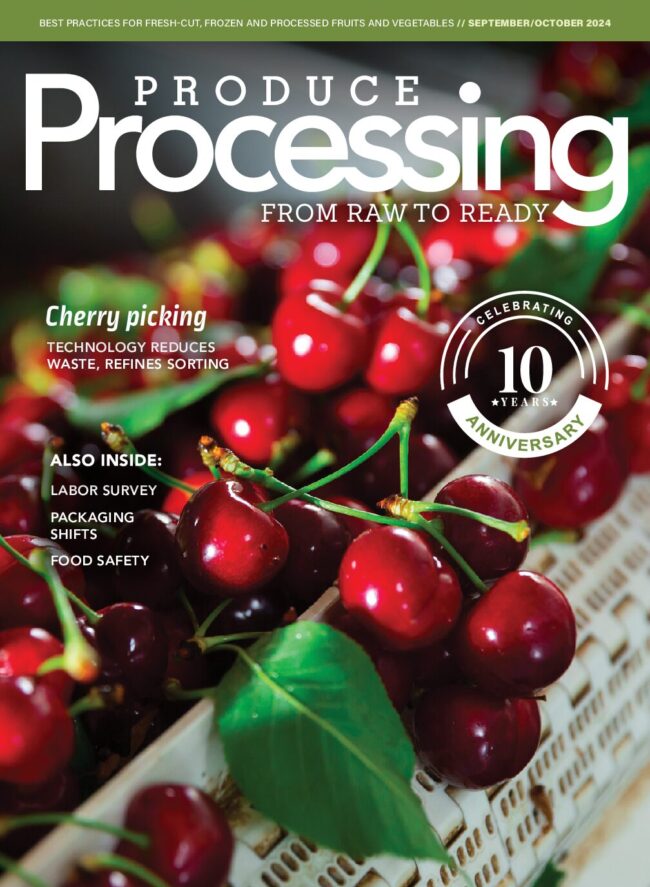Food Trends Watch 2020: Beets, mushrooms and fermentation
Each year, Produce Processing visits international trade shows around the world to get a handle on the next big food trends. Some trends spark consumer interest and then fizzle quickly, while others rise in popularity year after year. Here are some of the trends we spotted in 2019.
Fermentation fever
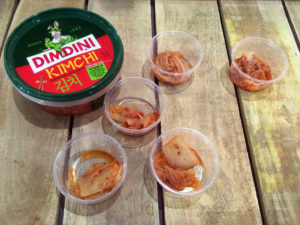
From old favorites like sauerkraut and kimchi to the return of lesser-known products like kombucha, fermentation is making a comeback in western kitchens. In fact, according to Upserve, a tech-based restaurant management platform, and data they analyzed from their customer base, the consumption of fermented foods rose 149% in 2018 alone. Its popularity makes sense, since it goes hand-in-hand with consumer perceptions on preservatives and gut health.
Fermentation is a natural process, which plays well into consumer expectations around “clean labeling,” as well as their desire to avoid the consumption of unnecessary additives and preservatives. Look for colorful new options, like purple cabbage sauerkraut, and combination products like Michigan-based Eden Mills’ Kimchi Sauerkraut.
Mushroom mania
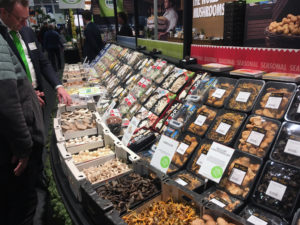
Earlier this year, the Huffington Post declared mushrooms the next big vegetable trend. While not technically a vegetable, their popularity is on the rise. Beyond the well-known varieties, like button, crimini and shiitake, gourmet varieties such as chanterelles, oyster and even wild morels and gaining popularity.
Mushrooms are showing up in the most unlikely of places. Finnish “superfood” company Four Sigmatic, for instance, offers unique products like mushroom coffee and chocolate-covered mushrooms. And believe it or not, they’re popular.
Fungi, both wild and domestic, also are making their way into all sorts of dishes. Uncommon varieties, which were on display at Fruit Logistica 2019, caught the eye of many visitors.
Plant-based replacements
Cauliflower has seen an incredible rise in popularity in recent years, and it doesn’t appear to be slowing down. It’s now available in one of this year’s most popular food colors — purple.
Cauliflower’s versatility and nutritional value may be what is drawing consumers, especially those following more plant-based diets, and retailers are picking up on this. American retailer Trader Joe’s, for instance, offers no less than eight cauliflower-based products that veggie versions of old classics, including cauliflower tabouleh, rice, pizza crust, gnocchi and mash.
The ubiquitous avocado helps drive new technology
Arguably, there was no bigger food trend this year than avocado toast, a luxury dish that came to symbolize wealth and excess during the course of the year. While the avocado trend was first big on social media, it also popped up in the halls of Fruit Logistica in Berlin this year.
Companies like NatureSeal offer products like Guacamole and Avocado Extender, an FDA-approved vitamin, mineral and organic acid blend that protects guacamole and cut avocado from oxidation.

We also spotted Felix Instruments’ F-751 Avocado Quality Meter, which is based on the original F-750 Produce Quality Meter and designed specifically to gauge the maturity and dry matter of avocados.
Italian company CTI Food Tech launched its new Avocado Pitter 300-AVC at Fruit Logistica 2019, calling it the first machine capable of pitting the avocado.
Developed in 2018, the Avocado Pitter 300-AVC can pit 300 avocados per minute, approximately three tonnes per hour.
“Until now there was no technology for this type of product,” said Christian De Marco, Area Sales Manager at CTI Food Tech. Previously, avocados were pitted by hand, a process that was both challenging and painstakingly slow.
“The factories use this type of machine to produce guacamole or halved avocadoes that they can freeze and ship to customers,” added De Marco.
The Avocado Pitter 300-AVC was nominated for an Innovation Award at Fruit Logistica 2019.
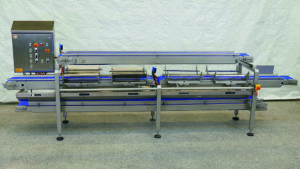
German equipment manufacturer KRONEN also offers a Convenience Avocado Line, made up of TONA S180K, a cutting machine with an in-feed conveyor belt and trim table, as well as separate transport, outfeed and waste conveyor belts. TONA S180K has a capacity of 1,200 pieces (or 180 kg) per hour. TONA Rapid has the capacity to cut 4,800 pieces (or 720 kg) per hour.
The Convenience Avocado Line is designed with your staff in mind, ensuring safe, flexible and effective processing. The clear interface and switch panel make it is user friendly and easy to operate thanks to the clear interface and switch panel. The tools and cutting insets can be changed quickly and easily.
Are beets the next big superfood?
Dense in nutrients, including potassium, magnesium, folate and Vitamin C, beets offer numerous health benefits, including reduced blood pressure and anemia, and improved circulation and cognitive function. Pennsylvania-based company Love Beets USA knew they were onto something when their beet products ticked the boxes of many of today’s major food trends.
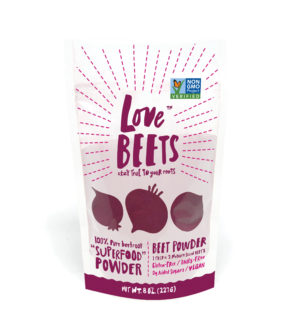
Plant-based eating continues to grow in America, with sales growing 20% since 2017, explained Brand & Marketing Director Natasha Lichty.
“Our ready-to-eat beets fit in perfectly with the consumers’ growing interest in consuming more vegetables, and we offer a no mess, no fuss way to enjoy this superfood,” she said. “Our products also appeal to consumers who are on gluten-free, Whole300, paleo, and Mediterranean diets, making our products incredibly relevant for consumers’ current dietary preferences.”
One of the draws is convenience. Love Beets are completely cooked and ready to eat, making them perfect for salads, smoothies and sandwiches, or as a healthy snack on the side.
“Consumers are looking to make healthy eating choices, but want convenient options that make eating healthfully easier,” said Lichty. “Raw beets are notoriously difficult and messy to prepare, and I think we’ve been successful because we’ve found a way to make them completely hassle-free while also providing a variety of flavors that make eating beets fun for a variety of eating occasions.”
Love Beets product line includes plain cooked beets, marinated baby beets, beet juice, and beet powder. Their beet powder is made from 100% beets, has no added sugar, and is non-GMO, gluten-free, dairy-free and vegan.
Beet powder is especially attractive to fitness buffs as it delivers the nutritional benefits and color of beets without any of the peeling, cooking, or juicing. It can be consumed simply by adding it to water, smoothies, and yoghurt or baked goods. Adding one tablespoon of beet powder to a smoothie is the equivalent of consuming three medium-sized beets.
— By Melanie Epp, contributing writer


